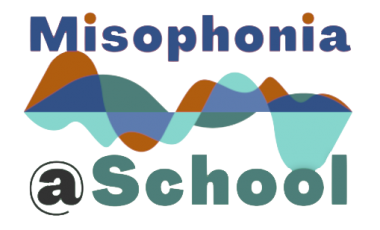Learning Objectives Understanding the meaning and the importance of inclusion for all


Misophonia@School E-Learning CourSe
Students with misophonia can live everyday school life like something to be avoided because they feel to be in a hostile environment. They feel themselves angry about their classmates’ behaviour (why do they produce such a lot of triggers to me?) as those trigger events prevent them to give attention to study, lessons etc.
Teachers must know that this lack of attention ability is due to misophonic people having a neuro-atypical brain.
The Misophonia@School e-learning training course for teachers will present all educational, environmental and behavioural strategies to help pupils with misophonia during their everyday school life. It is available in nine languages (English, Italian, German, Slovenian, Turkish, Spanish, Polish, Icelanic and Greek) and is made by six modules:
Module 2: Misophonia: the Unknown
Learning Objectives Definition of Misophonia. Historical background of Misophonia. Prevalence of Misophonia.
Module 3: Misophonia in Relationships
Learning Objectives Being aware of the symptoms of misophonia. Knowing social effects
Module 4: Misophonia and School Inclusion
Learning Objectives Understanding the meaning and the importance of inclusion for all
Module 5: Educational strategies for inclusion of
Learning Objectives Being aware of misophonia at school. Being aware of misophonia
Module 6: The Misophonia@School Screening Protocol
Learning Objectives Why understanding the scientific basis of misophonia is important. What
To access the Misophonia@School E-Learning Course go to training.misophonia-school.eu.
The European Commission’s support for the production of this web resource centre does not constitute an endorsement of the contents, which reflect the views only of the authors, and the Commission cannot be held responsible for any use which may be made of the information contained therein.
Project number: 2020-1-IT02-KA201-079622

© Misophonia@School 2023